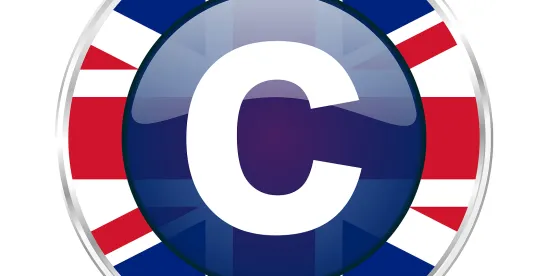The UK Intellectual Property Office (UKIPO) has issued updated statutory guidance for UK trade mark applicants following the seminal UK Supreme Court decision in Sky v SkyKick1 (the SkyKick Decision). This guidance, detailed in Practice Amendment Notice 1/252, provides important details on how the SkyKick Decision will affect the examination of UK trade mark applications going forward. We set out below the key details.
Background
Under English law, a trade mark cannot be registered "if or to the extent…the application is made in bad faith." The SkyKick Decision clarified the meaning and scope of "bad faith" in the context of trade mark registrations, particularly where the specification of goods and/or services is excessively broad. The Court emphasized that including broad categories in the specification, which cover goods and/or services the applicant never intended to use the mark for, may support a finding of bad faith and can lead to partial invalidity of the registration.
Although there is no requirement for trade mark applicants to have used a mark before filing, the system is open to misuse if marks are registered for goods and/or services without any real intention to use them. Such practices can create unnecessary obstacles to registration for others and distort competition.
Important Takeaways From the New UKIPO Guidance
- Routine Bad Faith Objections on Broad Specifications. UKIPO Examiners will now routinely raise bad faith objections during examination where an application’s specification is considered "manifestly" and "self-evidently" broad, reflecting an intent to claim protection beyond what can reasonably be supported by the applicant’s genuine intentions.
- Requirement for Commercial Justification. Broad terms such as "computer software," "clothing" or "pharmaceuticals" will not automatically attract objections from UKIPO Examiners. Applicants should assess carefully what is appropriate for their intended use, which might mean that a subcategory may be more appropriate.
- Certain Categories Will Always Face Objections. Certain specifications will always trigger a bad-faith objection. This includes applications that claim goods and/or services across all 45 Nice classes, or a claim covering all goods in Class 9.
- Applicant Response. UK trade mark applicants must respond to bad faith objections within two months. This may be done by either (i) providing a satisfactory commercial rationale for the goods and/or services listed in the specification; or (ii) amending the specification to reflect the intended use more accurately. Failure to respond to objections, or providing an unsatisfactory explanation, is likely to result in the refusal of the trade mark application for those parts of the specification that have been objected to by the UKIPO.
- Application in Opposition Proceedings. The UKIPO has already applied the Supreme Court's reasoning in recent opposition proceedings, refusing applications in full for bad faith where applicants failed to demonstrate any real business intention to use the mark for the breadth of goods and/or services claimed.
Comment
The new guidance reflects a notable shift in the UKIPO's approach, signaling a move towards a more proactive and interventionist stance in raising bad faith objections at the examination stage. The revised approach is effective immediately; however, how frequently and strictly the UKIPO will apply the guidance in practice is yet to be seen. Nevertheless, at this stage, organizations should be mindful of (i) the increased likelihood of bad faith objections being raised at the examination stage when preparing and filing trade mark applications; and (ii) the value of having a satisfactory commercial rationale for the scope of the specification if challenged by the UKIPO.
1 SkyKick UK Ltd and another (Appellants) v Sky Ltd and others (Respondents)' [2024] UKSC 36, see online version available here: https://www.bailii.org/uk/cases/UKSC/2024/36.html.
2 Statutory guidance: Intellectual Property Office, PAN 1/25: Required behaviour, and the impact on examination practice, following the Supreme Court's judgment in SkyKick UK Ltd and another v Sky Ltd and others (2024), see online version available here: https://www.gov.uk/government/publications/practice-amendment-notice-125/pan-125-required-behaviour-and-the-impact-on-examination-practice-following-the-supreme-courts-judgment-in-skykick-uk-ltd-and-another-v-sky-ltd-a.





 />i
/>i
